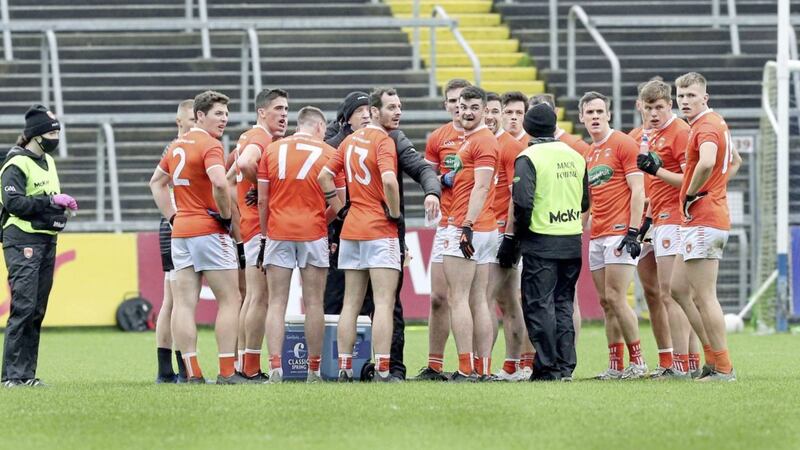THE NATIONAL Football and Hurling Leagues are likely to be postponed for at least three weeks due to concerns over the spread of Coronavirus.
There are six weeks’ to go until the scheduled start of the competitions – February 28 – and the GAA has yet to announce any changes, but Ulster GAA secretary Brian McAvoy has warned that a postponement into March looks probable.
With Level 5 restrictions south of the border, lockdown in the North and a ban on county team training until the end of January, McAvoy expects changes to be announced for the inter-county schedule.
“A decision will be taken at some stage in the near future but as of now it (the National League) still starts on the 28th of February. Is it likely to start on the 28th of February? Probably not,” he said.
“I think the GAA will probably wait to see what the latest Irish Government announcement is and then make an announcement.”
The National Hurling League will run in its familiar format but its football counterpart has been split into four-team North and South groups from which teams will progress to knockout rounds depending on their finishing position.
Ulster GAA chief McAvoy explained that there was a three-week window at the end of the year which could be utilised by moving the All-Ireland club championship semi-finals into 2022. He said doing that would cause minimum disruption to an already packed fixture schedule.
“It’s fairly easy to push it back three and weeks and you wouldn’t really be doing an awful lot of damage,” said McAvoy.
“At the minute the All-Ireland Club semi-finals are scheduled for the first two weekends in December and the weekend before Christmas is free. If you were to use that weekend and move the club semi-finals into January then there’s three weeks you have to play with.
“Anything longer than three weeks and you would have to give the fixtures schedule a bit more thought but if it was only three weeks, the only thing you would change would be moving the club semi-finals into January. The final is already scheduled for January so it would have to be moved back a week or too which is a possibility.”
Meanwhile, McAvoy warned that the loss of revenue incurred by the GAA last season due to the Covid-19 lockdown and bans on spectators will have an effect on GAA operations in the future.
“It has been a most challenging year for Ulster GAA financially with zero gate receipts from our biggest revenue earners, the Ulster Senior Football Championship and the Ulster Club Championships which were cancelled,” he wrote in his annual report.
“Inclement weather also impacted on attendances at the Bank of Ireland Dr McKenna Cup games and at the EirGrid Ulster U20 Championship, which moved to an earlier calendar slot in February/March.
“Worryingly, there is little prospect of turnstiles opening any time soon, so 2021 will be equally as challenging, if not more so, than 2020. This will continue to place significant pressure on the organisation and it will impact on our operational capability for some considerable time.”
McAvoy also expressed his relief that the British Government and the European Union had been able to agree terms on Brexit. He had previously highlighted his concerns over Brexit decision and the potential ramifications of a ‘No-Deal’ Brexit on the GAA.
“While it is a positive development that this (no deal) has been averted we still don’t know the full ramifications of Brexit and what it will mean for all on the island of Ireland,” he said.
“We can only but hope that the impact will be minimal but only time will tell.”



